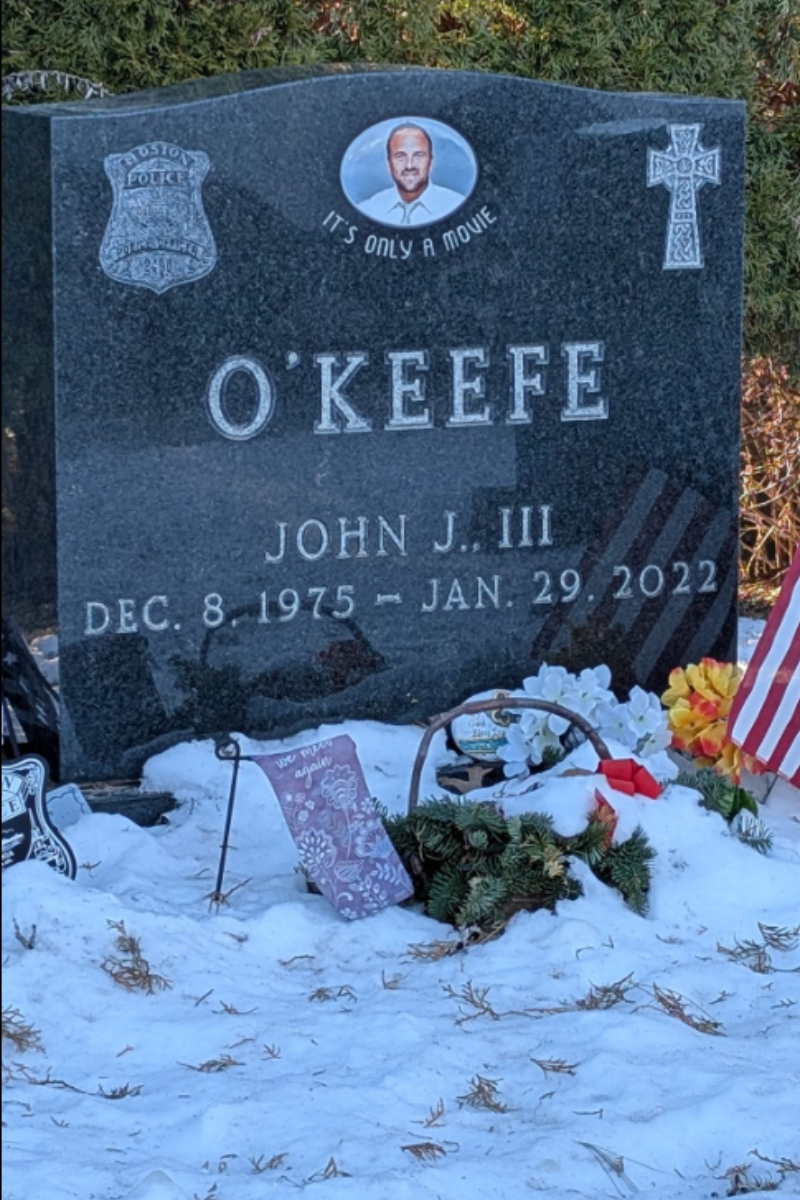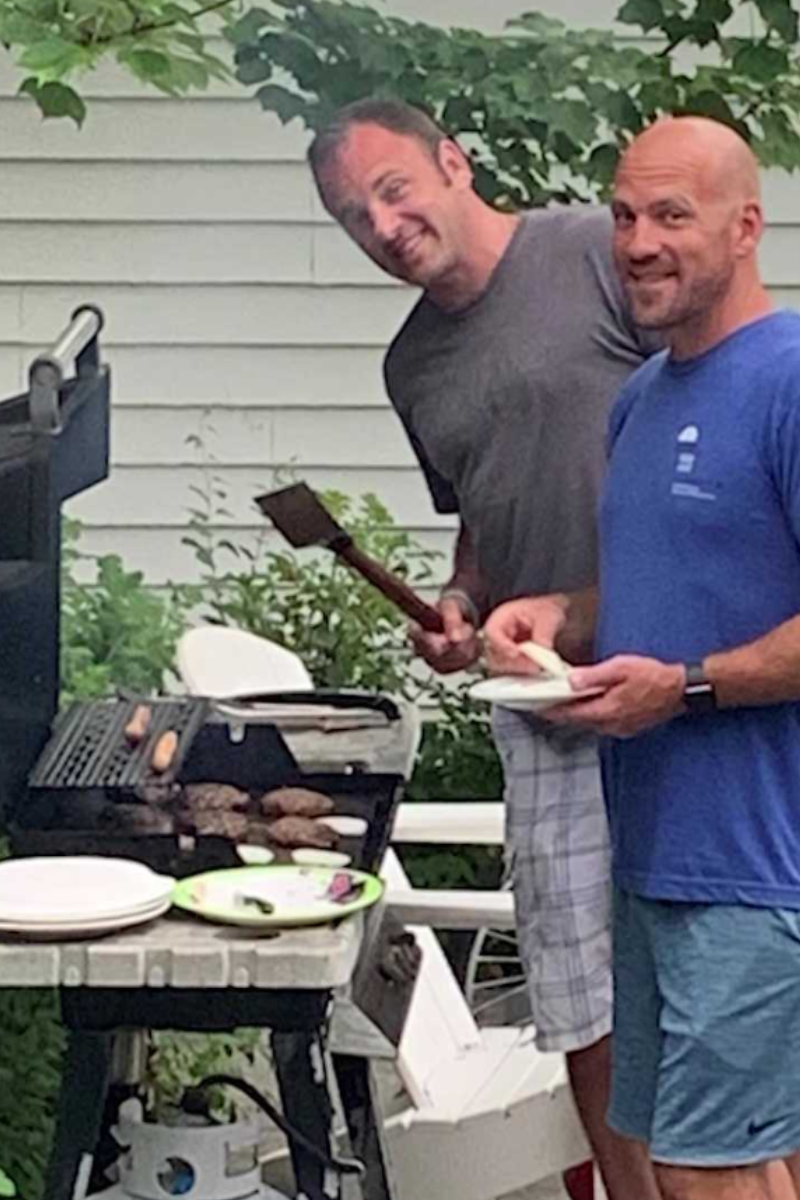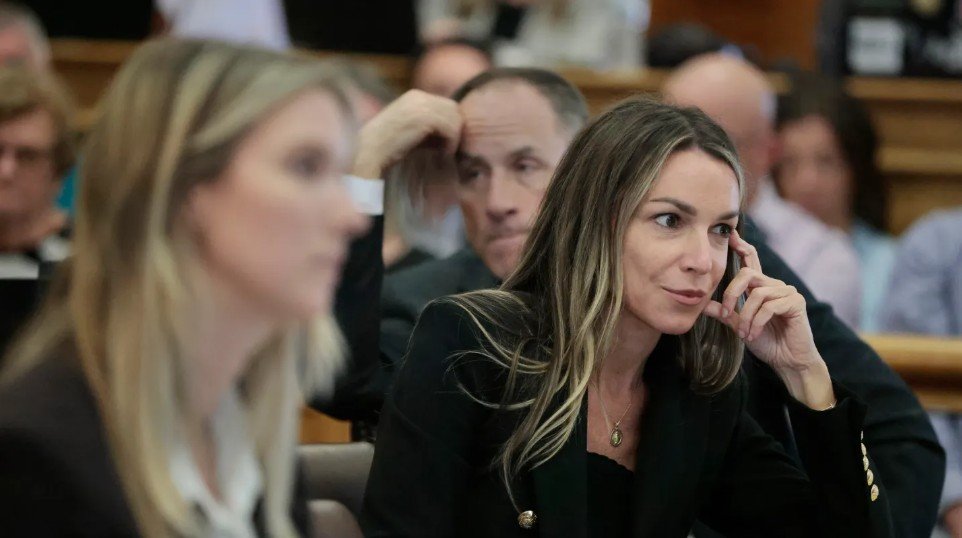
Image Credit: (Richard Beetham for Fox News Digital)
What Is Next For Karen Read?
Probation, Movies and Civil Suits
Probation Under the 24D Program: A Year of Scrutiny
After a dramatic and divisive criminal trial that ended with a split verdict, Karen Read walks away without a homicide conviction—but not without consequences.
Convicted of operating under the influence (OUI), Read now faces a year-long probation that could test her self-control and accountability more rigorously than the courtroom ever did.
Meanwhile, a wrongful death civil trial looms on the horizon, promising another legal reckoning with higher stakes than many realize.
And if that weren’t enough, media and public speculation about a possible movie or documentary deal continue to swirl around her.
As part of her sentence for the OUI conviction, Read was placed under supervised probation for one year and is required to complete Massachusetts’ 24D Driver Alcohol Education (DAE) Program. This is not a slap on the wrist. Participants in the 24D program must:
– Attend a 16-week course totaling 40 hours of instruction.
– Participate in weekly 2-hour group sessions.
– Undergo a clinical intake and a midpoint progress review.
– Attend victim impact awareness sessions and self-help meetings.
According to the Massachusetts Impaired Driving Program (MID) webpage. the total cost of the 24D program is about $1343, and failure to comply can lead to severe consequences: revocation of probation, possible jail time (up to 2.5 years), full license suspension, and thousands in fines.
Probation in Massachusetts includes random drug and alcohol testing, unannounced home visits, and the potential for warrantless searches based on reasonable suspicion. Probation officers are known to check homes for alcohol and drugs and verify compliance with all terms. Update: However, the 24D program is a bit less restrictive. Those who have completed this program report that the substance testing, home visits, and alcohol restrictions aren’t a requirement in this program and full compliance shortens the probationary period.
Read’s travel outside the state is not strictly prohibited, but it requires permission from her probation officer and possibly the court. The travel must be justified, brief, and cannot interfere with her program obligations.
While successful completion of the 24D program could lead to a case dismissal (CWOF, or “continuance without a finding”), it does not erase the offense from her RMV record. It also does not guarantee expungement, which is only granted under very narrow circumstances in Massachusetts.
Karen Read can apply for a hardship license to allow limited driving during her suspension, but only if she remains compliant with all terms of her probation.
Editor’s Note: An earlier version of this article overstated the supervision involved in the 24D program. Unlike traditional probation, 24D follows different parameters. According to the program’s official guidelines and reports from past participants, it typically does not include check-ins, home visits, or alcohol restrictions—only completion of required classes and submission of documentation to the probation officer.


Image Credit. WCVP-5 ABC
The Civil Trial: Accountability Without Reasonable Doubt
A wrongful death lawsuit filed by John O’Keefe’s estate is proceeding in Plymouth County Superior Court, reportedly because one of the plaintiffs resides there. Boston attorney Liam Scully, speaking to WATD News, emphasized that civil trials differ sharply from criminal ones in several key ways:
There is no presumption of innocence.
Karen Read will be compelled to testify; the right to remain silent, Fifth Amendment, does not apply.
The standard is preponderance of the evidence, more likely than not, (just 51% certainty).
The jury does not need to be unanimous, 10 of 12 jurors must agree.
A Massachusetts judge stayed (paused) the case in November 2024, citing Karen’s Fifth Amendment rights while her criminal case was still active.
With her criminal trial concluded (acquitted of homicide/manslaughter but convicted of DUI), the stay is expected to be lifted, though no official hearing date has been announced yet.
The civil suit, brought by the estate of John O’Keefe, alleges that Read is responsible for his death—not necessarily that she intended to kill him, but that her negligence led to his death. The wrongful-death lawsuit was initially filed in August 2024 by Paul O’Keefe (John’s brother), along with his parents and niece, against Karen Read and two Canton bars—McCarthy’s and Waterfall Bar—alleging overservice and negligence.
According to court records, Attorneys representing the OKeefe’s are:
Buck, Esq., Daniel T
Diller, Esq., Marc A
Karen Read’s listed attorneys are:
George, Esq., Christopher
Keville, Jr., Esq., William L
Palladini, Esq., Marissa K
Depositions will be taken in advance, locking in witness testimony before trial. Unlike the criminal trial, where Brennan and Jackson focused on conspiracy theories and gaps in the investigation, this case will hinge on civil liability: Did Karen Read’s actions, more likely than not, result in John O’Keefe’s death?
Depositions: Karen Read and key witnesses (e.g., bartenders, friends, police) can be formally questioned under oath.
Document exchange: Includes her phone records, photos, videos, medical/forensic reports, and bar surveillance.
Expert involvement: Plaintiffs will likely use medical-examiner and accident reconstruction experts. Read’s team may challenge their conclusions or introduce alternate theories.
Witness credibility fights: Given the heightened scrutiny and conflicting narratives, witness testimony (e.g., from the bars or party attendees) will be pivotal.
Attorney Scully noted that Read’s defense team will consist of civil litigators, although Alan Jackson may remain involved as a consultant. Boston, MA attorney Marc Diller drafted the complaint.
Next Steps:
Scheduling status and case-management conferences, where deadlines are set.
Resuming civil discovery, such as depositions and document requests directed at Read, the bars, and witnesses.
Pretrial motions, possibly addressing new evidence, admissibility, or summary judgment.
If unresolved, the case could proceed to a trial in Plymouth County Superior Court in Brockton.
The trial could last a month, with shorter daily sessions and more breaks than in criminal court. It may begin sometime in mid to late 2026.
Expect the courtroom to be packed again. Cameras are allowed in Massachusetts civil trials, and given the public fascination with the Read case, media outlets will likely petition for full access. While civil trials traditionally draw less attention, this one could prove an exception.
Public Perception: Unlike O.J. Simpson, who was widely viewed as guilty despite his acquittal, Karen Read has a large faction of vocal supporters who believe she was framed. Expect that group to remain active and potentially influence jury selection and public narrative around the civil case.
Potential Outcomes
Settlement: The parties may negotiate a payout—possibly confidential—to avoid trial.
Trial verdict: If unresolved, a jury could award compensatory damages (e.g., funeral or lost financial support) and potentially punitive damages if gross negligence is proven.
Award: The suit originally sought at least $50,000, but actual awards could be much higher depending on harm demonstrated.
The Movie Rumors: Fame or Fallout?
One of the most unexpected twists in the Karen Read saga came not from the courtroom, but from Hollywood. News broke that Read and her team inked a movie deal dramatizing her version of events, centering on her alleged innocence and the supposed corruption that led to her arrest.
In a story broke by Hollywood Reporter, talks for a movie or documentary deal, are sparking debates about whether someone fresh off a manslaughter trial should profit from the publicity. Legal experts say it’s not illegal, but it could be deeply controversial if she were found civilly liable.
Any such deal would need to be carefully structured to avoid looking like Read is profiting from a wrongful death. There could also be future civil actions to seize proceeds from any media venture if the O’Keefe family is awarded damages.
The question also begs as to how Read will travel back and forth to LA for this production. Will probation permit her to travel freely, or will they limit her involvement?
Cut From the Script: The Turtleboy Snub
In a move that has stunned even her most vocal supporters, the production has reportedly made “a creative decision” to exclude blogger Aidan “Turtleboy” Kearney from the film entirely.
The irony is hard to ignore—Kearney almost single-handedly built the “Free Karen Read” movement from the ground up, mobilizing a fervent online army, picking apart evidence in daily livestreams, and aggressively shaping public opinion long before traditional media caught on.

(Stuart Cahill/Boston Herald via Getty Images / Getty Images)
Despite his pivotal role, Kearney has been iced out. He has publicly stated that he wasn’t granted interviews by Read, her attorneys, or any insiders close to the case. While he tried to downplay the snub in a recent vlog, viewers could sense the sting. Especially as Read’s team made media rounds with legal analysts like Ian Runkle and The Lawyer You Know, even appearing on morning shows—leaving Kearney, who carried the torch through her darkest hours, completely in the dark.
The decision to cut ties with Turtleboy may have legal strategy behind it, but it’s also a bold PR pivot: Karen Read appears to be shedding her more extreme online allies in favor of mainstream respectability.
It’s a high-risk move. Some of Kearney’s loyal followers are beginning to grumble, and the betrayal narrative could fracture what was once a unified base of online support.
At the same time, this shift raises the stakes for any dramatization that suggests other individuals—such as Jennifer McCabe, Brian Albert, or Brian Higgins—may have been involved in wrongdoing. Those real-world figures could respond with defamation lawsuits, especially if they’re portrayed as thinly veiled fictional characters.
Higgins, for example, reportedly lost his field role with the ATF as a result of the smear campaign and has never spoken publicly. If the film implies he had a hand in a cover-up or worse, legal action could follow swiftly.
Turtleboy himself may also consider his options. Known for his relentless style and courtroom clashes, he could retaliate via his YouTube channel with exposés or even launch a tell-all docuseries of his own.
And if the movie includes a character that resembles him in any unflattering or misleading way? He might seek legal recourse, not just for being excluded, but for being misrepresented. The real drama may not unfold on screen—it may erupt around it.
The Personal Cost
This case has always been about more than legal guilt. It’s about a man whose life ended far too soon, a family left grieving and angry, and a woman whose choices—whether criminal or simply reckless—led to irreversible consequences.
The question now is not only whether Karen Read will be held liable in civil court, but whether she will take meaningful steps toward accountability.
Civil trials rarely attract the kind of public attention that criminal ones do. But for John O’Keefe’s family, the courtroom will still matter. Every deposition, every argument, every finding—it will all unfold under the weight of their loss.
Karen Read walks free for now. But her freedom is not immunity. The law still has one more question for her: not “Did you kill John O’Keefe?”—but “Were you responsible?”
Related Articles
Luigi Mangione Death Penalty Dropped, Reshaping Prosecution Strategy
A judge has removed the death penalty as a sentencing option in the case against Luigi Mangione, delivering a major win for the defense and significantly narrowing the scope of the prosecution. The ruling eliminates the most severe potential punishment Mangione faced...
Neo Langston Arrested for Failure to Appear as LA Witness
Neo Langston was arrested in Montana this week on a Los Angeles Superior Court warrant for failure to appear as a witness, according to Lewis and Clark County Jail records. Montana authorities confirmed they were assisting the Los Angeles Police Department’s...
Hold On a Minute: What Media Is Saying About Nick Reiner
There has been exactly two real developments in the Nick Reiner case: a change in attorneys and a new arraignment date set. That’s it. No evidence dump.No discovery.No probable cause affidavit released.No forensic details confirmed on the record. And yet somehow —...

